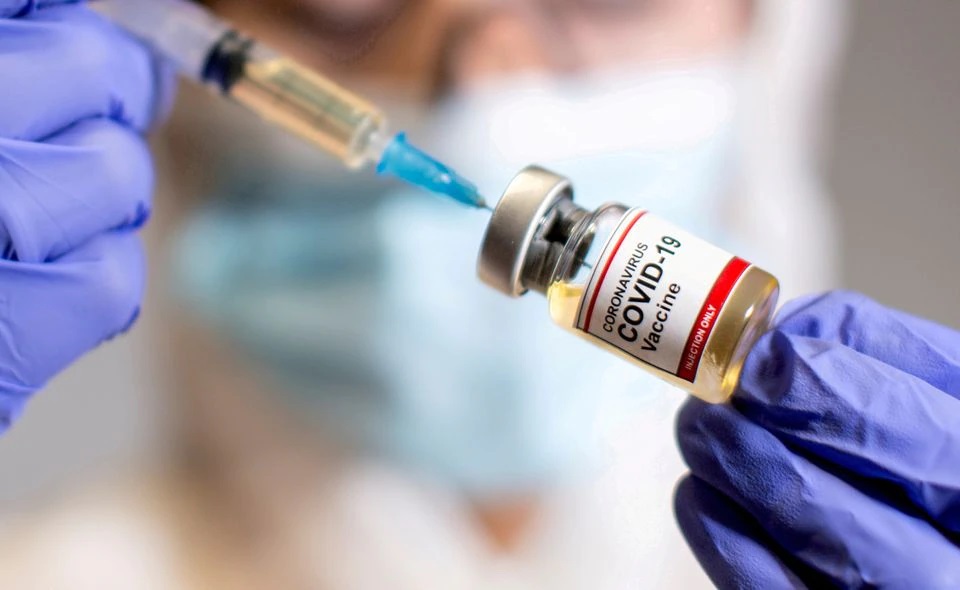Should I get the COVID-19 vaccine?

A woman holds a small bottle labelled with a “Coronavirus COVID-19 Vaccine” sticker and a medical syringe in this illustration taken October 30, 2020. REUTERS/Dado Ruvic/File Photo
If you are an adult considering COVID-19 vaccination, the short answer is YES. Vaccines not only protect individuals, but also communities and those who are ineligible for vaccination. History is replete with stories of immunization successes, including how vaccination made smallpox a disease of the past, and how we are vaccinating our way to polio eradication. It is reassuring to know that the COVID-19 vaccines being rolled out in the Philippines are authorized by the Food and Drug Administration for emergency use in adult Filipinos. Being given a stamp of approval signifies that these vaccines have been thoroughly evaluated by expert panels and regulatory authorities. All vaccines, like other medicines, are made available for use once such evaluation shows that the vaccines’ benefits outweigh their risks.
More and more evidence show that COVID-19 vaccines protect against mild, moderate, and severe disease, and that they are effective in the real world. COVID-19 cases and deaths have been decreasing in Israel, the United Kingdom, and the United States, countries that have been vaccinating a significant portion of their population. Decreased transmission has also been demonstrated in Israel, showing that vaccination probably reduces viral spread. Studies have also shown that vaccines provide some protection against COVID-19 variants that are implicated in recent surges across many countries. Indeed, in the race between SARS-CoV-2 variants and vaccination, countries that are winning in vaccination are also winning in public and economic health.
In terms of protecting those who are not eligible for vaccination, getting adults vaccinated is one of the best ways to keep children safe from COVID-19. Children usually have milder disease, but hundreds of children have already been hospitalized in the Philippines, and several have already died. Israel’s widespread vaccine roll-out resulted in decreased COVID-19 cases across all ages, including in children (who are all unvaccinated), suggesting that vaccinating adults is crucial to protect children. In addition, prioritizing vaccination of teachers and school staff might also provide us with a chance to safely resume face-to-face classes.
Looking ahead, experts say that immunizing adults will not be enough and that children will eventually need vaccination to obtain herd immunity. This is especially resonant in the Philippines where around 40% of the population is below 18 years of age. Moreover, the goal of getting 70% of the population vaccinated to obtain herd immunity might also have to be increased to address the more infectious variants (other countries are already targeting 75% coverage rates). Thus, it seems that vaccinating children will eventually be an important component of control and perhaps elimination of COVID-19.
Clinical trials for COVID-19 vaccines in children are ongoing and are expected to take several months. At least one vaccine is already approved for use in adolescents abroad. In children, the safety of these vaccines needs to be thoroughly evaluated, as well as the effects on the immune system as these differ from adults.
Article continues after this advertisementBut for now, the safety of our nation’s children is in the hands of our adults. We must ensure that all who are eligible will get their shots, and this would entail timely and factual health communications to boost vaccine acceptance. It also demands efficiency in implementation, accountability from officials who are in-charge of the vaccine roll-out, transparency in terms or benefits vs risks and the vaccine regulatory process, and continued surveillance of adverse effects.
And finally, a gentle reminder: getting vaccinated is but a part of our arsenal of weapons in the war against COVID-19. We must all be fastidious in observing other infection control measures like social distancing, wearing of masks, ensuring adequate ventilation, and handwashing. The increased number of cases in Chile, despite wide vaccine roll-out, was attributed to premature relaxing of its other infection control measures. This is a lesson we must all learn. Think of COVID-19 protection as similar to wearing clothes in cold weather – a jacket is important, but the more layers, the better, and it has to be a complete set.